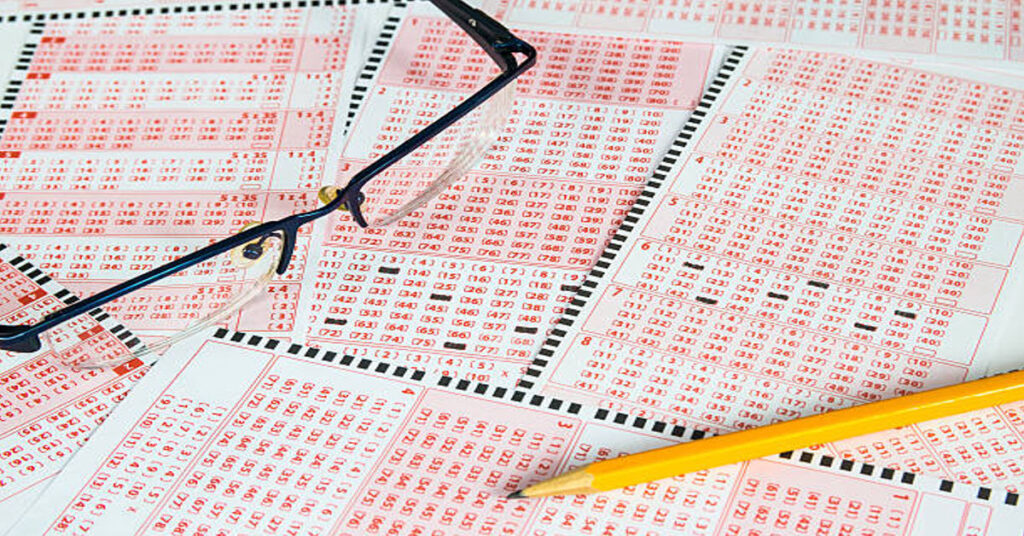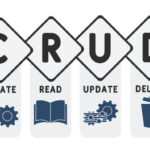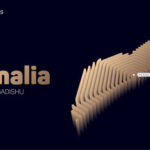Lotology is a unique and intriguing subject that combines aspects of mathematics, probability, psychology, design, and human curiosity. At its core, Lotology refers to the study and collection of lottery tickets, both used and unused. It is a specialized hobby and field of research that examines how lotteries function, their history, cultural meaning, and the fascinating ways people engage with the idea of chance.
While most people associate lotteries with gambling or state-run prize systems, lotology approaches them from a more intellectual and cultural perspective. It looks at lottery tickets not just as tools of chance but as artifacts of design, history, and human emotion. The colorful designs, printing techniques, and the stories behind them make lotology a captivating field for collectors and researchers alike.
1. Understanding the Concept of Lotology
The word “Lotology” derives from the root “loto” (meaning lottery) and the suffix “-logy” (meaning study or science). Hence, Lotology literally means “the study of lotteries.” But unlike a simple academic field, lotology is often considered a blend of study and collection—an intellectual hobby pursued by enthusiasts worldwide.
Lotologists (those who practice lotology) study how lotteries are created, how their tickets evolve over time, and how they reflect societal values. For many, it’s not about gambling at all—it’s about preserving the cultural artifacts and understanding the psychology of chance.
2. The Origins and Evolution of Lotology
Lotteries themselves date back centuries. Historical evidence shows organized lotteries existed in China during the Han Dynasty around 200 BCE, where keno slips were used to fund government projects. Over the centuries, lotteries appeared in Europe to fund wars, public works, and education.
However, lotology as a hobby and field of study emerged much later, in the mid-20th century, when state-run lotteries became more common. Early collectors began saving old tickets, scratch cards, and promotional lottery papers, realizing they represented more than just disposable gaming tools—they were historical and artistic objects.
By the 1980s and 1990s, communities of collectors began identifying themselves as lotologists. The advent of color printing, holographic designs, and unique ticket themes made collecting even more appealing. Today, lotology encompasses both historical research and artistic appreciation.
3. The Scope of Lotology
Lotology is broader than just collecting. It involves multiple disciplines:
| Field | Description | Examples of Application |
|---|---|---|
| Mathematics & Statistics | Studies the probability structures of lottery games | Analyzing odds, number patterns |
| Design & Printing | Examines artwork, typography, and production methods of tickets | Comparing ticket materials or layouts |
| Cultural Studies | Looks at how lotteries reflect social values and dreams | Studying themes like luck or fortune |
| Psychology | Understands human attraction to chance and reward | Research on risk-taking behaviors |
| History | Tracks development of lotteries and their evolution | Cataloging state or vintage tickets |
Lotology, therefore, sits at the crossroads of several disciplines. A true lotologist might collect tickets, analyze statistical patterns, study design evolution, and document the cultural meaning of lottery participation.
4. Types of Lottery Tickets Studied in Lotology
One of the most fascinating aspects of lotology is the vast diversity of lottery ticket types. Lotologists often categorize their collections based on ticket design, issuing authority, or play method.
Common Lottery Ticket Categories
| Ticket Type | Description | Collectible Value |
|---|---|---|
| Instant Scratch Cards | Reveal symbols or numbers instantly after scratching | High—due to visual design and nostalgia |
| Number Draw Tickets | Traditional tickets with printed numbers for scheduled draws | Medium—depends on rarity or historic events |
| Promotional Lotteries | Tickets from marketing campaigns or charity raffles | Variable—linked to brands or events |
| Vintage Paper Tickets | Older designs before digital printing | Very high—rare and historical |
| Themed Tickets | Special issues celebrating holidays, sports, or movies | High for pop culture appeal |
Collectors often preserve these tickets in albums, categorized by country, year, and theme, similar to stamp or coin collectors.
5. The Appeal of Lotology as a Hobby
Unlike gambling, lotology is about preservation and appreciation. The beauty of lotology lies in its connection to memory, design, and history. Each ticket tells a story—of the era it was printed in, the people who dreamed of winning, and the technology used to produce it.
Some enthusiasts compare lotology to philately (stamp collecting) because both involve studying printed materials as cultural artifacts. Just as stamps represent communication and postal history, lottery tickets represent hope and chance.
Emotional and Intellectual Appeal of Lotology
- Artistic Value: Modern scratch cards feature intricate holograms, metallic inks, and bold color combinations that appeal to collectors.
- Historical Significance: Tickets from defunct lotteries or special national events are treasured for their historical relevance.
- Psychological Interest: Collectors enjoy exploring the human side of risk-taking and anticipation.
- Cultural Expression: Lotteries often mirror a country’s social mood—optimism, ambition, or national pride.
- Educational Aspect: Studying lotology enhances understanding of probability, design, and consumer behavior.
6. Materials and Printing Techniques in Lottery Ticket Design
The physical design of a lottery ticket is a marvel of engineering and creativity. Lotologists often study printing methods, inks, and security features used in ticket production.
Common Printing Techniques
| Method | Description | Importance to Lotology |
|---|---|---|
| Offset Printing | Uses layered ink on coated paper | Common in high-volume tickets |
| Flexography | Employs flexible plates for fast production | Key for scratch cards |
| Screen Printing | Allows thick ink layers and special effects | Used in limited or artistic editions |
| Digital Printing | For promotional or experimental tickets | Rare, collectible for modern design |
Security features such as microtext, UV marks, and scratch coatings are also studied. Lotologists note how these evolved alongside anti-counterfeiting measures.
7. Mathematics Behind Lotology
Although collectors focus on aesthetics, many lotologists are drawn to the mathematical side. Lotteries rely on probability theory—a branch of mathematics dealing with randomness and prediction.
Understanding these probabilities helps collectors and analysts study the structure of lottery games rather than attempting to win them.
Example: Basic Lottery Probability
If a lottery requires selecting 6 numbers out of 49, the total combinations are calculated by the formula for combinations:
C(49,6) = 13,983,816.
That means the chance of selecting all six numbers correctly is 1 in nearly 14 million.
Lotologists study how these odds are presented to the public and how ticket design or marketing can influence players’ perception of chance.
8. Cultural and Global Perspectives of Lotology
Lotology reflects cultural diversity. Every country approaches lotteries differently—some see them as fun entertainment, while others use them as state revenue tools or charity fundraisers.
| Region | Lottery Characteristics | Lotology Interest |
|---|---|---|
| Europe | Historic state lotteries; elegant designs | Strong collector base |
| North America | High-value jackpots and modern scratch cards | Popular for bright visual designs |
| Asia | Ancient origins and unique symbolic imagery | Growing interest in old tickets |
| Africa | Community-based or charitable lotteries | Emerging lotology culture |
| Latin America | Colorful and artistic ticket designs | High aesthetic appeal |
In some regions, especially Japan and France, old lottery tickets are framed as art. In others, collectors form local clubs to exchange tickets and research production variations.
9. Preservation and Collection Practices
Proper preservation is crucial for any collector. Since tickets are made of paper, exposure to sunlight, moisture, or air pollution can cause fading and deterioration.
Best Practices for Lotology Collections
| Step | Purpose | Tools/Materials |
|---|---|---|
| Archiving in Albums | Prevents folding and creasing | Acid-free sheets and sleeves |
| Climate Control | Reduces humidity damage | Storage at 18–22°C, low humidity |
| Labeling and Cataloging | Helps document historical info | Spreadsheet or catalog software |
| Digital Scanning | Preserves virtual records | Flatbed scanners or photography |
| Protective Covers | Avoids surface scratches | Transparent archival-grade films |
Professional lotologists often keep both physical and digital archives, especially for rare vintage tickets.
10. Economic and Investment Aspects
While lotology is primarily a cultural hobby, some collectors see financial potential in rare or discontinued tickets. Like stamps or coins, scarcity, age, and condition determine value.
Factors Affecting Ticket Value:
- Rarity: Limited edition or early tickets from now-defunct lotteries.
- Condition: Unused, mint-state tickets command higher prices.
- Design Uniqueness: Tickets with misprints or special artwork.
- Historical Context: Tickets tied to important events (Olympics, anniversaries).
However, serious lotologists caution against focusing solely on profit. The real joy lies in the research and preservation of these miniature works of art.
11. Psychology of Lotology and Human Fascination with Chance
Humans are naturally drawn to uncertainty. Lotology allows people to study that attraction in a tangible form. The simple act of holding a lottery ticket symbolizes hope, risk, and imagination.
Psychologists who explore lotology often link it to the concept of “near-miss effect.” This phenomenon occurs when people almost win and experience the illusion of being close to success—motivating them to try again. Collecting these tickets lets enthusiasts reflect on that feeling without the financial risk of gambling.
Furthermore, lotology reveals cultural attitudes toward luck. In many cultures, colors like red or gold are used on tickets to symbolize fortune. The psychology of color and design also plays a role in ticket appeal—a dimension that lotologists analyze deeply.
12. Academic and Research Interest in Lotology
Lotology, though niche, has academic potential. It intersects fields such as cultural anthropology, media studies, and marketing psychology. Universities occasionally study lottery systems to understand human behavior, and lotology complements that by examining physical artifacts.
Research areas include:
- Economic sociology of gambling behavior
- Design evolution in state-run lotteries
- Symbolism in lottery imagery
- Print technology innovation
This emerging interdisciplinary field bridges humanities, economics, and creative arts.
13. Lotology in the Digital Age
With the rise of online lotteries and digital tickets, lotology has adapted. Collectors now archive screenshots, QR code tickets, and promotional e-tickets as part of their modern collection. While digital items lack tactile charm, they represent the evolution of lottery technology.
Digital lotology also enables virtual exhibitions, where collectors share scanned images and descriptions. Online databases, even privately created ones, catalog the evolution of design from paper to pixel.
Traditional vs. Digital Lotology
| Aspect | Traditional Tickets | Digital Tickets |
|---|---|---|
| Material | Paper, ink, coatings | Digital file, QR code |
| Display | Physical albums | Online galleries |
| Durability | Subject to aging | Permanent if backed up |
| Tangibility | Physical object | Virtual image |
| Collector Appeal | High aesthetic value | Historical and tech interest |
14. Lotology Events, Clubs, and Communities
Collectors often gather through lotology clubs or exhibitions to share findings and exchange rare tickets. These communities promote ethical collecting, documentation, and education.
Some enthusiasts organize exhibitions displaying tickets by decade or theme—showing how design trends mirror social change. For instance, 1980s tickets often used bold typography, while modern ones emphasize minimalist or holographic designs.
Clubs may also publish newsletters, price guides, and research articles that preserve the heritage of this niche pursuit.
15. The Future of Lotology
Lotology continues to evolve as both an art form and historical study. As physical lottery tickets gradually give way to digital formats, printed ones will become increasingly rare—and hence more valuable as cultural records.
Future lotologists may rely on digital archiving tools, blockchain certificates of authenticity, and 3D scanning to preserve designs in virtual form. Museums of popular culture may even dedicate exhibitions to the evolution of lottery design and its impact on society.
Ultimately, lotology will remain a bridge between human hope and artistic expression, reminding future generations how people once dreamed through a small piece of paper.
Conclusion
Lotology is far more than the study of gambling or the collection of tickets—it is the preservation of human imagination and cultural storytelling through the lens of chance. Each ticket carries history, artistry, psychology, and mathematics within its small frame.
In understanding lotology, we see how humans have always balanced logic and luck—an enduring pursuit that defines much of our civilization. Whether you are a collector, researcher, or simply curious, exploring lotology opens a window into how societies dream, design, and desire.
FAQs
1. What exactly is Lotology?
Lotology is the study and collection of lottery tickets—used, unused, or historical. It explores their design, production, cultural impact, and significance as collectible artifacts.
2. Is Lotology related to gambling?
Not directly. While it involves lottery tickets, lotology focuses on the historical, artistic, and cultural value of these items rather than playing or betting.
3. What kinds of lottery tickets do lotologists collect?
Lotologists collect various types including scratch cards, draw tickets, vintage issues, promotional lotteries, and special themed editions from different countries.
4. How can someone start a lotology collection?
Begin by saving modern tickets, organizing them by theme or country, and researching their history. Use acid-free albums and keep records of print dates and variations.
5. Does Lotology have future value?
Yes. As physical tickets become rarer with digitalization, their historical and artistic value will likely increase, especially for vintage or limited editions.







